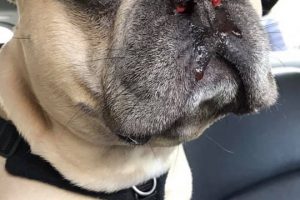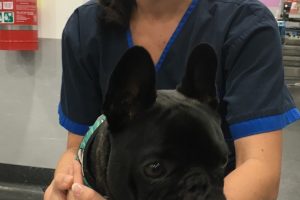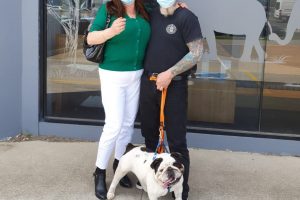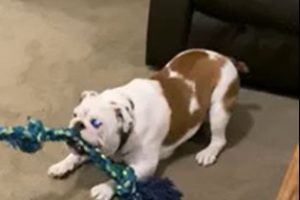This example is extremely important for all brachycephalic owners as well as veterinarians to take into consideration. Initial surgeons did a basic surgery, nares opening and palate shortening, citing absolutely nothing else could be done upon a poor initial result. Sent to another specialist, they disagreed suggesting the saccules and tonsils should be removed, the nares opened wider than the first surgery, and the palate shortened a lot more and also thinned. This demonstrates the importance of understanding the meaning or a pro-active 5/5 surgeon as opposed to a surgeon that may do all 5 aspects only if really necessary (often synonymous with the fact the don’t really do them). Our own clinic does many revision assessments demonstrating the same problem, a difference of opinion of what does and does not need to be done.








